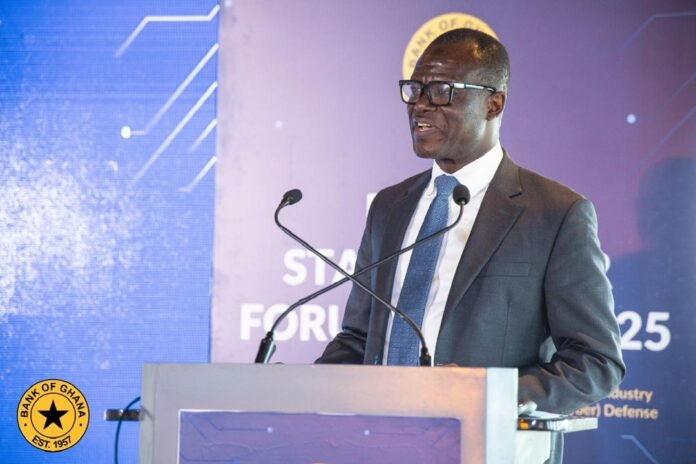Strengthening Cybersecurity in Ghana’s Financial Sector: Insights from Dr. Zakari Mumuni
In an era where digital threats are increasingly sophisticated, the Bank of Ghana (BoG) is taking significant strides to bolster cybersecurity within the financial sector. At the recent Financial Industry Command Security Operations Center (FICSOC) Stakeholders Forum held in Accra, First Deputy Governor Dr. Zakari Mumuni articulated the central bank’s commitment to enhancing cybersecurity through strategic partnerships and regulatory reforms.
A Strategic Alliance for Cyber Defense
Dr. Mumuni emphasized the importance of collaboration in combating cyber threats. The Bank of Ghana has formed a strategic alliance with the Cybersecurity Authority, which has officially designated the BoG as the Sectoral Computer Emergency Response Team (CERT) lead for the financial industry. This designation is not merely symbolic; it represents a mandate to foster collective defense mechanisms across the sector.
“When we collaborate, we don’t fight alone; we defend with shared purpose and tools,” Dr. Mumuni stated, highlighting the necessity of a united front against evolving cyber threats.
Addressing Evolving Threats
The financial sector’s critical information infrastructure is under constant threat from various sources, including insider breaches, digital fraud, and advanced persistent threats. As the Sectoral CERT lead, the Bank of Ghana is tasked with spearheading cross-sector intelligence sharing and developing unified responses to cyber incidents. This proactive approach aims to mitigate risks and enhance the resilience of financial institutions against potential attacks.
Revising Cybersecurity Directives
In response to the changing landscape of digital threats, Dr. Mumuni announced that the central bank is revising its Cyber and Information Security Directive. The updated framework will address new and emerging digital risks, incorporating guidelines for artificial intelligence, data privacy, cloud computing, and digital governance.
“The revised directive will be proportional and adaptive, ensuring institutions of all sizes can innovate while maintaining strong security standards,” he explained. This adaptability is crucial for fostering innovation while safeguarding sensitive financial data.
A Collaborative Forum for Stakeholders
The FICSOC Stakeholders Forum brought together a diverse group of high-level stakeholders, including central bank governors, director-generals of regulatory bodies, Chief Information Security Officers (CISOs), and Chief Information Officers (CIOs) from various banks and financial institutions. This gathering served as a platform for sharing insights, prioritizing risks, and allocating resources effectively across the financial ecosystem.
The collaborative nature of the forum underscores the importance of collective action in addressing cybersecurity challenges. By fostering an environment of cooperation, stakeholders can better prepare for and respond to cyber threats.
Conclusion
Dr. Zakari Mumuni’s leadership at the Bank of Ghana reflects a forward-thinking approach to cybersecurity in the financial sector. Through strategic alliances, regulatory reforms, and collaborative forums, the central bank is positioning itself as a leader in the fight against digital threats. As the landscape of cybersecurity continues to evolve, the commitment to innovation and shared defense will be vital in safeguarding Ghana’s financial institutions and maintaining public trust in the banking system.


